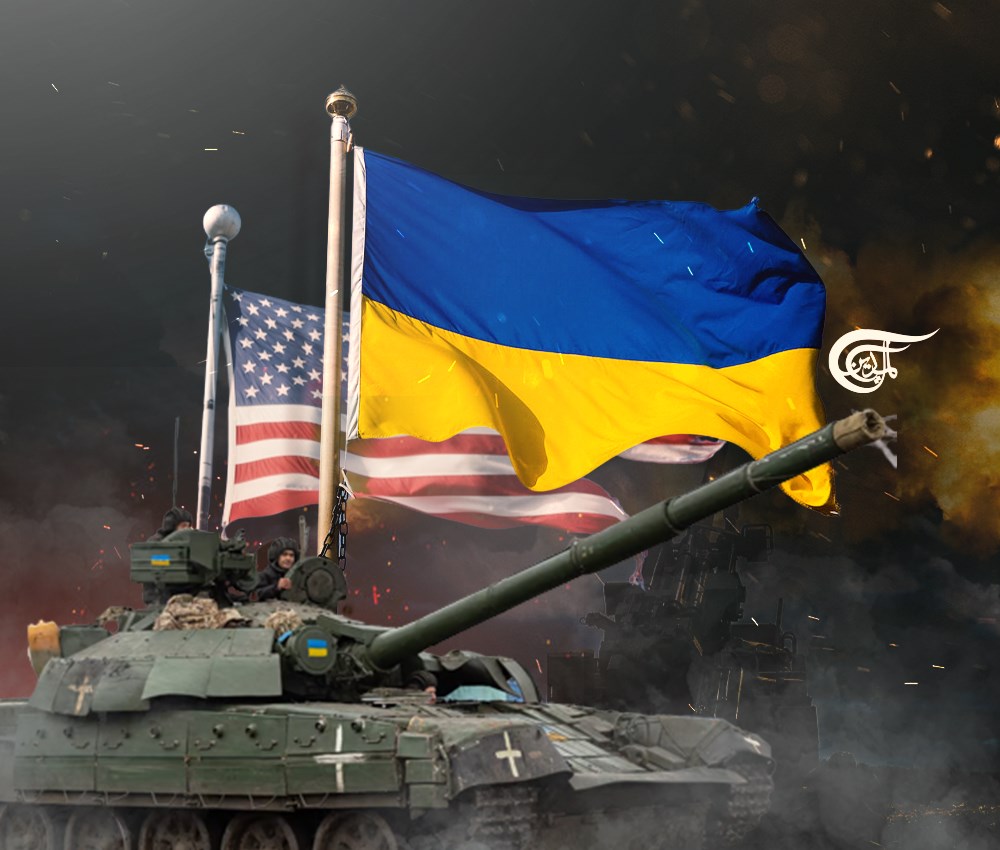Russia’s special military operation, one year on
Except that the Russian special military operation was ultimately never unprovoked at all, and the war didn’t begin last February, it had actually begun eight years earlier.
On the 24th of February last year, with Covid having disappeared from news headlines following the coincidental timing of the previous month’s World Economic Forum’s Davos Agenda event, the mainstream media would, in lockstep, move onto its next focus, Russia’s military intervention in Ukraine.
"Unprovoked invasion" and "Russian aggression" would replace masks and vaccines as the new corporate media talking points following that February morning, as well as the portrayal of Russian President Vladimir Putin as an almost cartoon-character type villain, a madman who had to be confronted lest the rest of Europe soon fall under Russian military occupation.
Wide-ranging sanctions targeting Moscow and mass expulsions of Russian diplomats from the West would take place in response, as well as the banning of Russian media outlets, such as RT and Sputnik. Russian athletes would also be banned from major sporting events, such as last year’s FIFA World Cup and discrimination against Russian people would effectively be legitimized in the West via the banning of any form of Russian cultural expression.
Extreme measures, ones that never took place against the US over its war on Iraq, "Israel" for its war on the Palestinians, or Saudi Arabia for its war on Yemen, were exceptionally applied to Putin’s "unprovoked" invasion.
Except that the Russian special military operation was ultimately never unprovoked at all, and the war didn’t begin last February, it had actually begun eight years earlier.
In November 2013, then-Ukrainian President Viktor Yanukovych’s rejection of an EU association agreement in favor of closer ties with neighboring Russia would result in violent protests quickly sweeping across the former Soviet state.
Under the auspices of Victoria Nuland, then-Assistant Secretary of State for European and Eurasian Affairs, the National Endowment for Democracy and Open Society Foundations, ‘Euromaidan’ – named after the Kiev square where neocon US Senator John McCain would infamously address protesters – would culminate in a Western-backed coalition of anti-Russian neo-Nazi elements coming to power in February 2014.
As a result, the predominantly ethnic Russian Donbass region in the east of the country would break away to form the Donetsk and Lugansk people’s republics in April of that year, following the previous month’s reunification of the historically Russian Crimean peninsula with Moscow, with the residents of both regions having little alternative lest they face ethnic cleansing and genocide at the hands of the new Kiev regime.
A war on the Donbass republics would follow, resulting in 14,000 deaths, with scant media coverage in the West. Though a federalization solution was offered by the Minsk Accords, which would have granted Donetsk and Lugansk a degree of autonomy while still remaining under Ukrainian rule, the continued shelling of ethnic Russians in the Donbass and the distinct possibility that Ukraine would host US nuclear missiles within striking distance of Moscow had Kiev ultimately gone on to become a NATO member. This led Russia to launch a military intervention in February 2022 in order to defend the residents of the Donbass and to destroy any military infrastructure intended for use against Russia.
Despite the prevailing mainstream narrative being that this military operation was "unprovoked", a recent interview with former German Chancellor Angela Merkel, a mediator during the Minsk discussions, where she admitted that the purpose of the agreements was to give Ukraine more time to build itself up militarily, indicated that a plan was in place to draw Russia into a prolonged conflict with its western neighbor, the second largest country in Europe.
Indeed, this would be a tactic with historical usage against the Kremlin.
In 1979, at the height of Cold War tensions between East and West, the administration of US President Jimmy Carter would launch Operation Cyclone, a covert program, which saw the arming, funding, and training of Wahhabi militants known as the Mujahedeen, who would then go on to wage war against the previously Western-friendly government of Afghanistan, which had come under neighboring Soviet influence following the 1978 Saur Revolution.
The subsequent Soviet invasion of Afghanistan in December of that year, at the request of Kabul, would last a decade and is seen by many as a contributing factor to the break-up of the Bloc in 1991. Indeed, Zbigniew Brzezinski, National Security Advisor to Jimmy Carter and instrumental in the implementation of Operation Cyclone, would later recount in a 1998 interview how drawing the Soviet Union into a costly military misadventure was a motivating factor in the operation’s conception.
A strategy that, with similar guerrilla training being provided to Kiev’s military personnel, is seemingly being repeated in Ukraine, and with Volodymyr Zelensky’s repeated calls for an increase to the already extensive armaments being supplied to his forces, may eventually escalate beyond Ukrainian borders.

 Gavin O'Reilly
Gavin O'Reilly
 5 Min Read
5 Min Read












